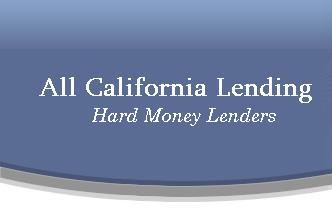|
The loan industry is full of terms that are
foreign to many people. The following mortgage loan terms glossary should help you
translate the mortgage language into English and help you make sense of
the loan process. These are general mortgage terms, many apply to
private money loans as well.
Appraisal
An expert opinion on the value of a
property
Annual Percentage Rate
This is not the note rate applied for,
but rather is a government mandated formula that shows the cost of the
loan in a yearly rate by using the note rate plus certain other upfront
costs.
ARM Loan
Adjustable Rate Mortgage. Mortgage
characterized by an interest rate that can adjust up or down at certain
intervals based on a current index (commonly the 1 year T-Bill) plus a
preset margin.
Balloon
Mortgage characterized by level fixed
payments for a predetermined time frame followed by either a refinance
or adjustment in interest rate.
Capital Gains
The tax paid upon certain types of real
estate transactions. Contact accountant for specifics.
Cash to Close
The amount needed from the borrower at
closing. Consists of down payment, closing costs and prepaid items. This
amount needs to be in the form of a cashier check made payable to the
buyer.
Closing Date
Date stated on the purchase agreement
that buyer and seller agree to finalize or close the transaction.
Closing Costs
Various costs of setting up and funding
the transaction - including closing fee, title insurance, appraisal
fees, underwriting fee, mortgage registration tax etc.
Condo/Town Home
Property types that usually have the
following characteristics: they are attached, have a homeowners
association and dues, the outside maintenance is taken care of by the
association, and common areas and amenities available to all owners in
the association.
Conventional Financing
Standard, non-government financing.
Credit Bureaus
Agencies that provide compilations of
your credit history. The three main credit bureaus are Experian, Trans
Union, and Equifax.
Credit Report
Report provided by the credit bureaus
which shows the history, current status, and profile of an individual.
Credit Scores
The number generated by the credit
bureaus which is a numerical representation of the subjects credit
profile, range is from 450 on the low side to 900 being the highest
score possible.
Debt Ratios
Ratio of debt to pretax income, often
expressed as a front (housing payment only) or back (all debt) ratios.
Ex- $5000 monthly income, $1400 housing payment, $1700 total debt would
equal ratios of 28%/34%.
Discount Points
One point equals one percent of the loan
amount. Points are used to lower the interest rate. One point does not
equate into lowering the interest rate one percent. Generally lowering
the interest rate 1/8 will cost about 1/2 point, although this can vary
based on daily pricing. Typically is tax deductible.
Down Payment
Difference between loan amount and
purchase price.
Earnest Money
Deposit toward down payment submitted
with a purchase agreement as evidence of the buyers commitment.
Equifax Information Services
PO Box 740243
Atlanta, GA 30374
(800) 685-1111
Escrows
The portion of the monthly payment that
is not applied to principal or interest, but rather is used to pay
mortgage insurance, homeowners insurance and property taxes.
Experian Information Services
PO Box 2002,
Allen, TX 75013-3742
(888) 397-3742
Fannie Mae
Short name for the Federal National
Mortgage Association. One of the main Government Sponsored Agencies
which are the companies who sell mortgage backed bonds to investors.
They are the ultimate source of the money that we lend. Fannie Mae
protects its investors by issuing underwriting guidelines that are to be
followed to ensure quality lending.
Freddie Mac
Short name for Federal Home Loan Mortgage
Corporation - see above.
FHA Financing
Government backed minimum down financing
program which has a lower mortgage insurance premium and greater credit
leeway as compared to conventional minimum down programs.
Fixed Loan
Most common type of financing. Terms
ranging from 10 to 30 years. Interest rate and P&I payment remains
constant throughout life of loan.
Floating
Not locking in a rate, but rather
choosing to float the interest rate as the market moves up or down.
Flood Certification
Required document on all loans. Confirms
if the property is in or out of a FEMA designated flood zone.
Funds held in Escrow
Generally only applies to new
construction. Monies held from the seller to provide payment for repairs
or non completed items.
Good Faith Estimate
Document prepared by lender which
estimates and delineates the various fees and closing costs associated
with the home purchase.
Government Financing
Financing provided from government
agencies such as FHA, VA etc.
HELOC
Home Equity Line of Credit. Second
mortgage product, generally characterized by interest only payments and
the ability to draw, pay back, and redraw.
Home Inspection
Not required by lender. This is a private
inspection done by the buyers choice to confirm that the property is in
acceptable condition.
Homeowners Association Dues
Amount paid by owner of a townhome or
condo to cover various amenities or services provided by the homeowners
association (examples -- common areas, hazard insurance, garbage,
mowing, snow removal).
Homeowners/hazard Insurance
Insurance which covers damage or loss to
the property. The premium is usually paid into an escrow account held by
the mortgage company, which then pays the insurance company once a year.
HUD-I (Settlement statement)
Document prepared by title company at
closing which shows where all of the money in the transaction was coming
from and going to.
Jumbo Loan
Loan with an initial balance greater than
$300,700
Jumbo Pricing
Refers to the fact that rates are
generally slightly higher on jumbo loans.
Loan-to-Value (LTV)
Ratio of liens versus value of property
or sales price. Ex. 80,000 owed on a property worth 100,000 equals an
80% LTV.
Lock-in Period
Time period that a rate is protected for
during the loan process.
Locking in
Choosing to protect a particular rate and
program for a specific period of time.
Mortgage Insurance (MI)
Insurance which protects the LENDER
against default. Generally the higher the loan-to-value the higher the
monthly premium.
Mortgage Document
This document signed at closing is the
collateralization of the property to the note or loan.
Note
Document. This document signed at closing
is the promise by the signers to repay the loan.
Origination Fee
1% of the loan amount. Can be avoided by
paying a higher rate; typically is tax deductible.
Odd Days Interest/Per Diem Interest
Collected at closing, it is money
collected/refunded to borrower to synchronize the closing to the monthly
payments.
Paying Points
Money paid upfront to lower the interest
rate. Rule of thumb - breakeven point is (where monthly savings
meets/exceeds money paid upfront) usually around 60 payments or 5 years.
This means that in many cases paying points will pay off as long as you
do not sell or refinance your loan before the breakeven point. (actual
breakeven point may vary, please talk to us about your exact situation)
Some niche programs and products may require points to be paid.
Piggy Back
A second mortgage closed at the same time
as a first mortgage. Usually purpose is to avoid mortgage insurance,
jumbo pricing, or for future needs.
PITI
Monthly payment. Stands for Principal,
Interest, Tax escrow, Insurance (both hazard and mortgage) escrow.
Pre-Approval
Based on documented income, assets, and
credit.
Pre-paids
Group of items paid at closing including
monies to set up the escrow account and to pay prepaid or odd days
interest.
Pre-Qualification
Based on stated income, assets and debt.
Information not verified, not as useful or informative as a
Pre-Approval.
Pre Payment Penalty
An option on certain loan types. A
benefit in that the rate is lower on these products compared to other
similar products.
Private Money Loan
A loan made outside of conventional or
institutional sources. Typically these loans are made by
individual private money investors, but can be fractionalized or pooled.
Property Taxes
Amount of tax due on a property. Usually
is collected as part of the escrow portion of the monthly payment, with
the lender being responsible to forward the escrowed money as the bills
come due on May 15 and Oct 15.
Purchase Agreement
Contract between buyer and seller
outlining the terms of the agreement.
Single Family Residence
Standard, one unit home, as opposed to a
Condo/Town Home with a homeowners association.
Title Company
Company that prepares title work and is
where the closing is held.
Title Insurance
Policy provided by the title company on
their title work guaranteeing the accuracy and completion. Lenders
Policy is required and only protects the Lender from loss, Owners Policy
is available at buyers discretion and protects the owner.
Title Work
Document prepared by title company which
outlines the ownership of the property and other various details.
Trans Union Information Services
PO Box 1000
Chester, PA 79022
(800) 916-8800
Underwriting
Act of approving a loan application.
Underwriters are bound by guidelines set forth by Fannie Mae, Freddie
Mac, FHA or VA as applicable.
VA Financing
Government backed financing available
only for service veterans, characterized by no down payment, no mortgage
insurance, but with a funding fee
|

